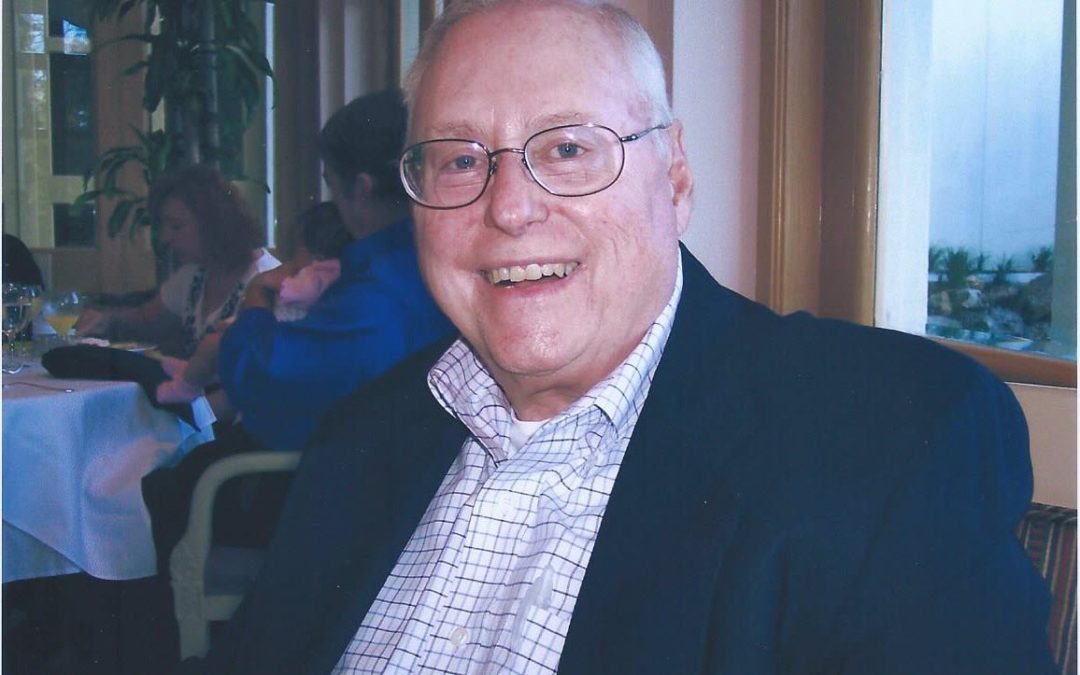by Dan | Mar 14, 2020 | Uncategorized
Dear FAV Advocates,
In the spirit of supporting public health policy to slow the spread of COVID-19 (Coronavirus), FAV will not host public gatherings until May 1st of this year. Prior to that date, we will reassess to determine if further cancellations are required. We have exciting programming planned for the month of May, however we will prioritize your health and support societal efforts to control the transmission of the virus and not overwhelm our healthcare system.
In the meantime, FAV will leverage our virtual capabilities for Coffee Talk programming and Delegate VTCs. Please see the schedule below and consider joining us for a virtual coffee talk on how faith communities are responding to the Coronavirus. Now is a time to reassure each other and look out for our neighbors.
Yours in service,
Steve & The FAV Team
In the News
‘American Dirt’: Kicking up dust in the book industry. This expose explores thought policing going on in the book industry. (Christian Science Monitor)
read more
The Amish use tech differently than you think. Maybe we should emulate them. (An op-ed from the Washington Post)
read more
Upcoming Events
TBD March – Virtual Coffee Talk, “Coronavirus & Faith Communities,” Free to all members
16 April – Delegate Videoconference, Coffee Talks & Difficult Conversations
30 April – Virtual Coffee Talk, “FAV Programming Update,” Free to all members
7/8 May – coffee talks “Media Bias” in North Carolina w/ PEN America (Tentative)
11 May – coffee talk “Digital Detox” at Value UMC, Oakton, VA
12 May – Coffee Talk “Media Bias”, Freedom Museum, Manassas, VA
12 May – Dr. Cornell West at Museum of the Bible, DC
30 July – Delegate Videoconference, Symposium 2020
24 September – coffee talk “Media Bias” in Newtown, PA
25-26 September – National Symposium “First Amendment & Civic Engagement”, National Constitution Center, Philadelphia
Partner Spotlight
Apply for the 2020 Sacred Sector Fellowship! Deadline to apply: March 15th
Seminarians are increasingly entering into faith-based nonprofit leadership roles, but often need a better understanding of how public policy and cultural trends affect the faith-based sector. The Sacred Sector Fellowship offered in Summer 2020 by the Center for Public Justice is a unique learning cohort that helps you discern your vocational calling and equips you for service within the sacred sector.
As as a Sacred Sector Fellow you will:
- Receive a $,5000 stipend
- Experience a 1-week educational intensive with Sacred Sector staff
- Experience 9 weeks of field experience at a faith-based organization
APPLY HERE

by Dan | Mar 11, 2020 | Uncategorized

On May 31, 2017, President Trump tweeted “Despite the constant negative press covfefe” shortly before deleting it. The misspelling later became the inspiration behind the Communications Over Various Feeds Electronically for Engagement Act, also known as the COVFEFE Act of 2017. It was introduced to the House of Representatives on June 12 and although it has not yet passed, the COVFEFE Act has significant implications for First Amendment rights and publicly-elected officials’ use of social media.
Let’s unpack exactly what the COVFEFE Act was trying to do and explore how it remains a pressing First Amendment issue in 2020 and beyond.
Communications Over Various Feeds Electronically for Engagement Act
The COVFEFE Act sought to revise the Presidential Records Act to require the National Archives to preserve presidential tweets and other social media interactions. Introduced by Illinois Representative Mike Quigley, the bill was designed to prevent current and future U.S. presidents from deleting social media posts (on official channels like @POTUS and personal channels like @realDonaldTrump).
As former White House Press Secretary Sean Spicer said, President Trump’s tweets ought to be “considered official statements by the President of the United States.” With this in mind, the creators of the COVFEFE Act argued that social media posts ought to be preserved by the National Archives (even if the posts were eventually deleted), per the requirements outlined in the Presidential Records Act.
Is Social Media Legally Classified as a Public Forum?
There are serious First Amendment implications surrounding the COVFEFE Act, including the recent lawsuit, Knight First Amendment Institute v. Trump, in which the plaintiffs successfully argued that the “public forum” nature of social media meant that President Trump blocking users constituted a violation of their First Amendment rights.
In the first legal decision, Judge Naomi Buchwald stated, “This case requires us to consider whether a public official may, consistent with the First Amendment, “block” a person from his Twitter account in response to the political views that person has expressed, and whether the analysis differs because that public official is the President of the United States. The answer to both questions is no.”
The Second Circuit upheld the lower court’s decision in July 2019, which led to new lawsuits against other elected public officials, such as Representative Alexandria Ocasio-Cortez, who had blocked some people from viewing her Twitter account at the time.
Although the COVFEFE Act is still just a proposed piece of legislation, it seems important that all citizens – regardless of their political beliefs or affiliations – ought to be able to view every public official’s social media posts. The “public forum” nature of social media is still under consideration in countless legal battles across the country, and regardless of political party or level of public office, our elected officials have a Constitutional obligation to remain transparent in their interactions with the public, even when they would rather block someone who disagrees with them.

by Dan | Mar 11, 2020 | Uncategorized
FAV is excited to present a new honor, the Edward D. Lowry Memorial Award for Citizenship, during the National Symposium in September. Steve Miska, Executive Director of First Amendment Voice, acknowledged, “We wanted to honor Ed Lowry’s life and legacy by recognizing outstanding civic engagement and encouraging citizens to serve others and engage on issues of importance in their communities. He created bonds throughout the community and across ideological divides.”
Edward Diller Lowry (1944-2019) exemplified civic virtue during a lifetime of service; a dedicated husband, father, citizen and patriot. At age seventeen, Ed was in an automobile accident that resulted in the loss of his dominant hand. With a lot of hard work, he taught himself how to function and handle everyday “ins and outs” using his left hand. Although hard for a young man, he had the courage to live life, despite setbacks and never let his injury limit him. During his professional life, he served for decades in the telecommunications industry, conducting governmental coordination and receiving. When Ed retired at the end of 2000, he was Executive Director of Federal Regulatory Policy and Planning for Verizon Communications. In that capacity he helped shape the law and government regulation as technology changed freedom of expression. He also served as a member of the Michigan State Public Utilities and on the advisory boards of KMB Video and the International Engineering Consortium. In 2017 the Vienna Mayor and Shepherd’s Center recognized him as Volunteer of the Year.
In retirement, Ed never learned to slow his pace or service to others. Within his church (which he attended for 37 years) he chaired numerous committees and started many initiatives that have forever changed his community. Ed was never afraid to talk to anyone he encountered and relentlessly sought out partnerships with local business and agencies in order to serve others. Due to his drive and passion, many of these initiates not only blossomed, but thrived.
In addition to endless hours leading at his church, Ed served on the Board of Directors for the Shepherd’s Center of Oakton-Vienna. At the Shepherd’s Center, he was active on the fundraising committee, drove seniors without transportation to doctor’s appointments, volunteered for the friendly visitors program, and was Co-Chair of the congregational advisory committee. Ed also joined First Amendment Voice as a strategic advisor. He quickly became involved in the strategic planning process and facilitated outreach and partnership engagement, connecting key partners to the FAV movement.
Ed gave advice with collegial candor and exhibited the moral courage to challenge assumptions and choose the harder right over the easier wrong. His ability to work across ideological differences united people in common purpose. He was passionate that every person has the ability to give back in some capacity, and he lived this out through volunteerism. Ed believed that playing an active role in any organization could come through monetary donations, willingness to ask for sponsorships, or service. He
recognized the importance and value of donating time. Ed had a way of encouraging others to contribute their time, talent or resources, and sometimes could be described as relentless in this pursuit. In the wake of his death, many of the people in organizations he impacted have commented that it will take 10-15 people to carrying on his legacy.
FAV is convening a nominating and selection committee to shepherd the process of identifying upstanding citizens engaged in service to community. FAV will announce the recipient in advance of the National Symposium and design an award that symbolizes Ed’s life of service and inspires others to rise to that level of civic engagement. This year FAV will host its National Symposium in Philadelphia at the National Constitution Center from September 25-26th.
If you would like more information about FAV’s plans to honor Ed’s legacy through the Edward D. Lowry Memorial Award for Citizenship, please contact Diane DuBois at (202) 215-5341 [email protected] or Heather Miska at [email protected]

by Dan | Feb 26, 2020 | Uncategorized

A number of new studies show that Americans aren’t very good at spotting fake news. Are you?
Many fake news sites spoof credible ones, using a similar URL and logo. For example, ABC News could appear as abc-news.com with a similar logo, to trick people into believing they are reading credible news. Also, look at the website’s “Contact” and “About Us” pages. If there’s no editorial contact or the description of their purpose and mission is vague or missing altogether, that could be a sign that the site was created solely to shape public perception with misleading or false stories. Do a quick Google search of the website. Is there a history of bad press about the source? Some sites have been outed as venues for foreign governments to intervene in our elections.
Does the article have a byline? If so, does the author have a track record of quality content? Did the writer interview reputable sources and include direct quotes and links to supporting information? Is the writing clean or is it full of errors? All of this matters, because legitimate journalists conduct themselves in a legitimate manner, while trolls aren’t concerned with following journalistic standards and practices.
If you’re on the fence about the credibility of a source, do some research. Are other outlets reporting on the same matter? Do you see recurring themes as far as the facts being reported? People or organizations with malicious intentions will create their own narrative and it’s usually not supported by other accounts.
Does the website have a lot of pop-up and banner ads? Many misleading sites have a lot of those. Other sites feature shocking headlines but the text of the stories don’t support the outlandish claim(s) being made. Does the story seem a bit far-fetched? Does it align with your beliefs and make you angry? Many fake news stores are written specifically to invoke anger. Be aware of confirmation bias. That’s the tendency to put more stock in information that confirms your beliefs than information that doesn’t.

by Dan | Feb 12, 2020 | Uncategorized
As of May 31, 2019, the U.S. State Department began requesting social media information from visa applicants. The new practice arose from President Trump’s 2017 Memorandum on Implementing Heightened Screening and Vetting of Applications for Visas and other Immigration Benefits. By early December 2019, two organizations (Knight First Amendment Institute and the Brennan Center for Justice) sued to put an end to this policy on the basis that it allegedly violates the First Amendment rights of visa applicants.
The controversy surrounding the social media identification requirement has sparked a great deal of discussion about freedom of speech online and the extent to which the federal government should be able to monitor and even regulate freedom of speech, not just for American citizens in online forums but also for non-citizens seeking U.S. visas.
In other words, visa applicants are not U.S. citizens, but should they still granted the same First Amendment freedoms as if they are? And what are the possible consequences of social media identification requirements for people seeking visas?
To uncover why the State Department’s new practice may be unconstitutional on First Amendment grounds, let’s first examine whether non-citizens are legally granted the same Constitutional rights and what implications this practice may have if it continues.
Visa Applicants and the First Amendment
Although the Constitution was primarily written to protect the rights of American citizens, many of the amendments are intended to cover non-citizens as well, say some Constitutional scholars. They argue that the Bill of Rights was intended to protect citizens and non-citizens alike because the Constitution doesn’t ever say these rights are limited to “citizens;” the Constitution simply says “the people.”
Michael Kagan, Associate Professor of Law at the University of Nevada – Las Vegas, has written extensively about non-citizens’ relationship with the First Amendment, particularly when it involves freedom of speech and freedom of religion. As he wrote in an essay for the Boston College Law Review in 2018:
Speaker identity changes speech in powerful ways, which is why it is dangerous to allow the government to silence certain speakers based on who they are. The Court should recognize that immigrant speech is important enough to be protected by the First Amendment, both for immigrants in the United States and for American citizens who may benefit from hearing what they have to say.
In sum, immigrants and temporary visa holders should maintain the same First Amendment protections as U.S. citizens because denying them said rights would be discriminating against these groups on the basis of identity (non-citizen) and silencing these groups could be enormously detrimental for American society as a whole.
Freedom of Speech Online
The broader question here involves freedom of speech online: why do social media accounts matter in this case? The original purpose of President Trump’s new State Department practice was likely intended as a means for protecting our national security. After all, terrorists commonly use social media as tools for recruitment and propaganda dissemination, which is why asking visa applicants to identify their social media profiles seemingly makes sense at first.
However, this policy can produce a sort of chilling effect on free speech, in which visa applicants no longer share their ideas, opinions and attitudes online in fear of getting denied a visa to the U.S.
For instance, the lawsuit filed by the Knight First Amendment Institute and the Brennan Center for Justice was sparked by the Doc Society and the International Documentary Association’s concerns about filmmakers from around the world being able to express themselves freely, even if their ideas are unpopular. Without access to a U.S. visa, some filmmakers may not be able to continue their investigative reporting and critical documentary work because many filmmakers are reliant on U.S. events to obtain support and resources for their projects.
Beyond filmmakers, it’s simply untenable to require all visa applicants to reveal each and every one of their social media profiles. In some cases, an individual may use a pseudonym to avoid harassment or other serious threats; in other cases, the visa applicant may have expressed an opinion deemed unpopular and/or unsupportive of the current (or future) presidential administration, which could trigger a denial of their visa application.
We don’t know how far-reaching this law may be, which is why we must support the First Amendment for everyone protected under the Constitution, particularly in online environments that are increasingly subject to governmental regulation, such as social media.

by Dan | Jan 24, 2020 | Newsletter
FAV Members,
The year 2019 brought us many surprises and blessings. FAV earned 501c3 status and quickly gained the Bronze seal of transparency with Guidestar. We have a plan to get Silver and Gold prior to this year’s Symposium in September. We doubled the size of our board of directors bringing on Lawrence Rosenberg, a senior partner with Jones Day who has litigated First Amendment issues in front of the Supreme Court, Chelsea Langston Bombino, Director of the Sacred Sector, a lawyer and new Mom, and Stan Ellis, who brings two decades of financial management experience in the nonprofit sector. FAV is extremely blessed to have these talented individuals added to our founding team and look forward to the amazing work we will do together in the future.
As last year brought great change, 2020 promises much. We start by bidding farewell to Naomi Yakawich, who has been our stalwart communications professional keeping you informed about the many things going on with FAV. Congratulations to Naomi for a recent promotion and marriage! We look forward to seeing her continue great things in her new capacity. We will also celebrate our Fifth Annual National Symposium in 2020, bringing the program back to the National Constitution Center in Philadelphia. We are excited to make speaker announcements and also let you know about the Edward D. Lowry Memorial Award for Citizenship that will be presented for the first time at the Symposium. Ed lived a life of service as an active citizen in his community, exemplifying the mantra that “Citizenship is not a spectator sport.” We look forward to honoring his life and helping inspire others to live up to the standards that Ed set for civic engagement.
Lastly, we continue our long range strategic planning process, FAV 2025. We have almost concluded the first phase and will keep you updated as the trajectory comes together. Look for more updates in the future including during our upcoming “Delegate’s Call” on January 30th. All FAV Delegates, Board, Advisors and Paid Members are invited as a benefit of their membership and contributions to raising the level of civic dialogue and helping inspire citizens to engage on issues of importance in their communities. We are extremely grateful to the support of all members who care about their communities and want to engage in constructive ways to bridge divides and continue progress through effective understanding and employment of First Amendment freedoms. Whatever your community issues, an effective grasp of the First Amendment will help you make progress.
With Gratitude, Steve & the FAV Team
Organizational Partner Spotlight
FAV is grateful to the Museum of the Bible for providing a VIP tour for FAV Friends & Family in December at no costs. Thanks to the work of the late Ed Lowry, FAV Strategic Advisor and Delegate, The Museum of the Bible hosted a dozen FAV members and family for a wonderful tour. Would you like to get a chance to see the museum? Check out the upcoming events section below for great programming coming up.
Upcoming Events
January 30 – delegate and member videoteleconference, FAV 2025, RSVP to Heather, time 8pm EST/ 5pm PST [by invitation for paid FAV members and delegates]
February 8 – Balm of Gilead, Museum of the Bible, D.C. register here
February 29 – Difficult Conversations Workshop, San Clemente, CA register here
May 12 – Dr. Cornell West, Museum of the Bible, D.C. Save the date! More info on museum website.
September 25-26 – fifth annual National Symposium, Philadelphia, National Constitution Center

by Dan | Jan 8, 2020 | Uncategorized
 Worried about ‘fake news’? You should be. Several new studies, including one by the McCombs School of Business at The University of Texas at Austin, show that for the average person, it’s extremely difficult to recognize incorrect, misleading and outright false stories on the Internet. Even more troubling, researchers at the Massachusetts Institute of Technology found that stories found to be false by six major fact-checking services often spread 10 times faster online than legitimate news stories.
Worried about ‘fake news’? You should be. Several new studies, including one by the McCombs School of Business at The University of Texas at Austin, show that for the average person, it’s extremely difficult to recognize incorrect, misleading and outright false stories on the Internet. Even more troubling, researchers at the Massachusetts Institute of Technology found that stories found to be false by six major fact-checking services often spread 10 times faster online than legitimate news stories.
Studies also show that fake news stories with clickbait headlines in many cases are getting more engagement and shares on social media than legitimate news stories. This poses a serious threat to the freedom of the press clause in the First Amendment. That’s because fake news stories are designed to distort public perceptions about real-life events, which has led to problematic consequences such as increased public distrust of media organizations, lower subscription rates for credible news outlets, higher rates of censorship, harassment and even violence against journalists and alarming incidents of people acting upon fake news stories. Remember the “Pizzagate” scandal? In 2016, Russian operatives, Twitter bots and others manufactured the ‘news’ that Hillary Clinton ran a pizza-restaurant child-sex ring. The falsehood went viral, shaping public perception of Clinton. A North Carolina man, acting on the baseless report, went on to fire an AR-15 rifle inside the pizza restaurant in Washington, D.C. that was mentioned in the baseless article.
While misleading and false news continues to appear on the Internet, news by legitimate sources continues to be attacked as ‘fake’ news. By dismissing unfavorable news stories as “fake,” individuals, many of whom have large followings on social media and in real life, are contributing to shape negative public sentiment towards journalists and media organizations.
Discrediting legitimate news stories and/or organizations by labeling them as “fake”, combined with the proliferation and increased sophistication of truly ‘fake’ news is making it increasingly difficult for members of society to discern between fact, “alternative facts,” and fiction. This only furthers public mistrust in otherwise highly credible news outlets and allows an individual’s persuasiveness to outweigh factual reporting published by diligent journalists.
To help combat the growing issue of fake news in our society, be sure to read through FactCheck.org’s guidelines for detecting fake news stories before sharing a questionable news story on social media or dismissing something you disagree with as “fake news.”

by Dan | Dec 25, 2019 | Uncategorized
 Consumer activism, which refers to citizens influencing how goods and services are produced, marketed and delivered to consumers, has been around for years. However, the instantaneous nature of digital communications has expedited the ability for consumers to rally support for their causes and persuade companies to change how they do business.
Consumer activism, which refers to citizens influencing how goods and services are produced, marketed and delivered to consumers, has been around for years. However, the instantaneous nature of digital communications has expedited the ability for consumers to rally support for their causes and persuade companies to change how they do business.
In other words, consumer activism seeks to change how a good or service is created (especially in regards to ethical and environmental issues) through various means of protest, such as boycotting certain businesses/industries, urging others to stop using a product or service, and spending more money on products/services that are sustainably produced in terms of non-wasteful materials and ethical labor standards.
Just as Citizens United v. FEC found that corporations can assert rights to freedom of speech through monetary means, citizens can also “speak” with their consumption habits and preferences. It’s a fascinating phenomenon that many of us have witnessed yet few have consciously thought about when it comes to its effectiveness and consequences for brands and consumers alike.
To uncover the First Amendment underpinnings involved in consumer activism, let’s explore some present-day examples of it in action:
Modern Examples of Consumer Activism
There are countless examples of consumer activism in the U.S. and abroad, including some of these recent events:
- #DeleteUber (encouraged consumers to delete the ride-sharing app after numerous scandals, such as user data mismanagement and alleged profits from the Trump Administration’s travel ban)
- #DeleteFacebook (encouraging consumers to get rid of their Facebook profiles in wake of controversies like Cambridge Analytica and countless data breaches)
- Blizzard Boycott (gamers fleeing the popular video game company after it censored pro-Hong Kong gamers on its live streams and in its competitions)
- Zara fur ban (the company eliminated all animal fur products from its stores in wake of pro-animal activists’ complaints)
Is Consumer Activism Effective?
Just as early American colonists effectively initiated a revolution with the Boston Tea Party (which involved a boycott of British tea after the government monopolized the tea industry in the thirteen colonies through lowered taxes on British East India Company goods), consumer boycotts are often effective nowadays as well.
As consumers express their demands through their purchasing decisions, companies are forced to adapt to changing preferences in the market. Activists have successfully persuaded numerous companies to adopt more environmentally sustainable manufacturing practices (using more eco-friendly, recyclable materials) and advocated for fairer labor practices and higher wages for workers both in the U.S. and abroad.
Consumer activism isn’t always successful, but it’s nevertheless an important trend that aligns closely with the freedoms of speech and petition outlined in the First Amendment of the Constitution.

by Dan | Dec 11, 2019 | Uncategorized
 Fake news has been around for some time, but it’s been brought to light recently in the context of the 2016 presidential election. But the reality is that — to some extent — misinformation has been around since the beginning.
Fake news has been around for some time, but it’s been brought to light recently in the context of the 2016 presidential election. But the reality is that — to some extent — misinformation has been around since the beginning.
Social media is perhaps the most egregious venue today, since it has the ability to transmit and amplify information quicker than when we could share information only person to person. This makes it even more important to be vigilant when consuming information online so we can avoid falling prey to false or misleading information and perpetuating it.
Here’s how to do you due diligence:
Check the source.
What is the URL? Some fake news sites will try to spoof credible ones, using a similar URL and logo. For example, ABC News could appears as abc-news.com with a similar logo, to trick people into engaging. Also, look at the website’s “Contact” and “About Us” pages. If there’s no editorial contact or the description of their purpose and mission is vague or missing altogether, that could be a sign that the site lacks legitimacy.
When in doubt, do a quick Google search of the website. Is there a history of bad press about the source? Some sites have been outed as venues for foreign governments to intervene in our elections.
Dive deeper.
Sometimes bad actors will use outrageous headlines to grab attention and drive traffic.. Before sharing any piece of content, read the piece in its entirety. Does the article have a byline? If so, does the author have a track record of content? Did the writer interview reputable sources and include direct quotes and links to supporting information? Is the writing clean or is it chock full of errors? All of this matters, because legitimate journalists conduct themselves in a legitimate manner, while trolls aren’t concerned with following journalistic standards and practices.
Look at the big picture.
If you’re on the fence about the credibility of a source, do some research. Are other outlets reporting on the same matter? Do you see recurring themes as far as the facts being reported? People or organizations with malicious intentions will create their own narrative and it’s usually not supported by other accounts.
In short, the Era of Fake News requires critical thinking. Everyone could stand to be more cautious about their approach to media consumption. How do you ensure you’re not engaging in fake news? Share your tips on our Facebook Page.

by Dan | Nov 27, 2019 | Uncategorized
 The First Amendment applies to many areas of civilian life, including our educational systems. For example, the courts have recognized that students are guaranteed rights prescribed by the First Amendment.
The First Amendment applies to many areas of civilian life, including our educational systems. For example, the courts have recognized that students are guaranteed rights prescribed by the First Amendment.
However, it wasn’t always this way. As our country evolved so did its laws. When adopted in 1791, the First Amendment applied only to Congress and the federal government. So when the public school system was formalized in the 19th century, students could not make First Amendment claims.
This censorship lasted into the 20th century. In fact, the Wisconsin Supreme Court ruled that school officials could take punitive action against two students who had an unflattering poem published in the local newspaper. Why was this permitted? According to the court, “such power is essential to the preservation of order, decency, decorum, and good government in the public schools.” What followed was a dangerous precedent. For example, In 1915, the California Court of Appeals ruled that school officials could suspend a student for challenging the administration.
The 1940s brought some fresh air with the flag-salute case of West Virginia v. Barnette. It was then that the U.S. Supreme Court explicitly extended First Amendment protection to students attending public schools. The Barnette case was rooted in religious freedom. Several students who were Jehovah’s Witnesses refused to salute the flag because their faith discourages them from showing allegiance to any worldly government.
School officials chastised the students and their parents. The students then sued, claiming a violation of their First Amendment rights. This time, the court ruled in the students’ favor, holding that the free speech and free exercise of religion provisions of the First Amendment guarantee the right of students to be excused from this exercise on the account of religious beliefs.
There are more recent cases of violations of free speech in a school setting. Earlier this month, the ACLU sued the Smith County School System in Tennessee because according to the organization, “school officials regularly incorporate prayer into school events and preach to students in violation of the separation of church and state.”
Public schools should be vehicles for education, not religious indoctrination. That’s why we continue to fight for First Amendment rights in and outside the classroom. Will you join us?














